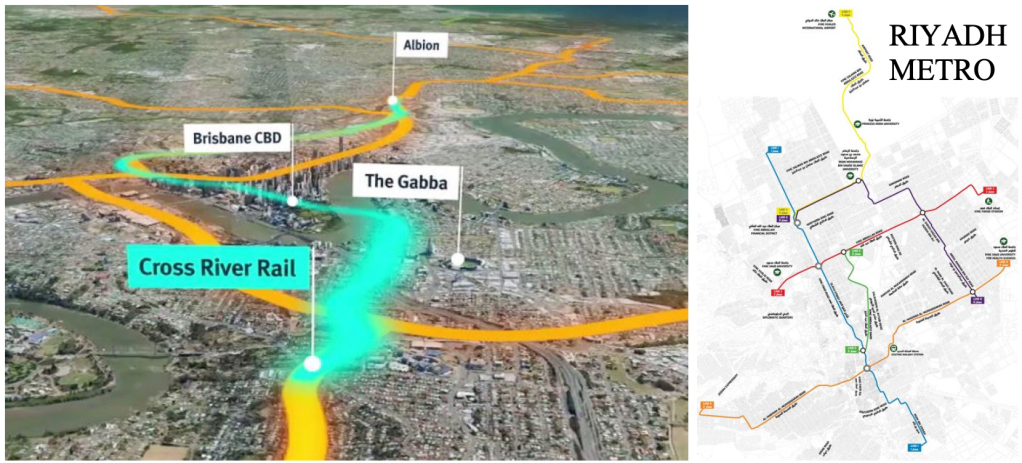
Lytton Advisory was in the Middle East last year for an assignment. It got us thinking about comparisons of urban transport systems and what constitutes value for money.
Here is one to consider. A few simplifications have been made to bring capital cost, new route length and population into perspective. These projects are at the core of these cities’ transport systems.
Brisbane’s Cross River Rail is building 10.4 km of new rail line and four new stations. A further eight existing stations will be upgraded. The cost is stated to be A$5.4 billion or around US$3.5 billion.
Cross River Rail – US$336 million per kilometre. The population of Brisbane is 2.5 million. Cross River Rail costs about $134 per person per kilometre.
Riyadh is installing a complete metro system for US$22 billion. This will build six metro lines totalling 176km with 85 stations.
Riyadh metro – US$125 million per kilometre. The population of Riyadh is 6.9 million. Riyadh metro costs US$18 per person per kilometre.
Station densities on the new routes are one every 2.6 km for Cross River Rail and one every 2.1 km for the Riyadh metro.
It appears that Cross River Rail is more expensive on a per new kilometre per resident basis by a factor of 7.4 times. There are plenty of reasons why Cross River Rail might be more costly, but surely more is going on than just tunnelling and labour costs.
So is Cross River Rail better value for money than Riyadh metro?
3 replies on “Value for Money”
I guess value for money is mostly looked at from a more local geographical perspective – from the funders and from the potential beneficiaries of the project. So from a beneficiaries and a funders (State/Federal govt) perspective a value for money assessment of Cross River Rail would be based on the other options available (not including a metro in Riyadh!).
The broader assessment of value for money would come into consideration if you were trying to attract investment from the international pension funds for example. But then, their assessment of value for money might be based on a risk vs return profile.
LikeLike
Thanks, David. An insightful comment. Beauty is in the eye of the beholder. It does make me wonder if we are overpaying for what we are getting here.
LikeLike
There aren’t too many active Trade Unions in KSA, I’ve noticed. Could possibly be a factor…
LikeLike